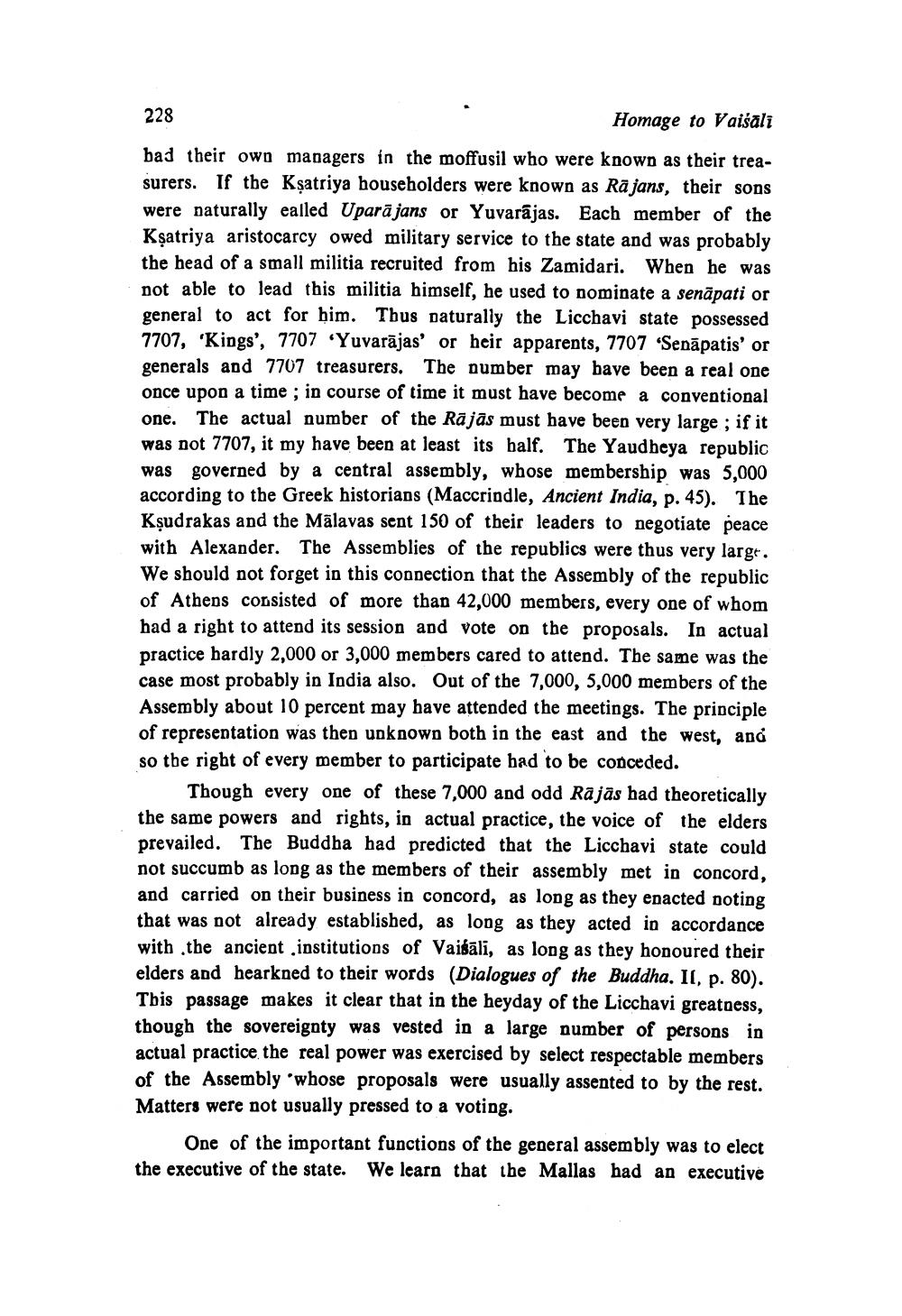________________ 228 Homage to Vaisali bad their own managers in the moffusil who were known as their treasurers. If the Ksatriya householders were known as Rajans, their sons were naturally ealled Upara jans or Yuvarajas. Each member of the Ksatriya aristocarcy owed military service to the state and was probably the head of a small militia recruited from his Zamidari. When he was not able to lead this militia himself, he used to nominate a senapati or general to act for him. Thus paturally the Licchavi state possessed 7707, 'Kings', 7707 "Yuvarajas' or heir apparents, 7707 Senapatis' or generals and 7707 treasurers. The number may have been a real one once upon a time ; in course of time it must have become a conventional one. The actual number of the Rajas must have been very large ; if it was not 7707, it my have been at least its balf. The Yaudbeya republic was governed by a central assembly, whose membership was 5,000 according to the Greek historians (Maccrindle, Ancient India, p. 45). The Ksudrakas and the Malavas sent 150 of their leaders to negotiate peace with Alexander. The Assemblies of the republics were thus very large. We should not forget in this connection that the Assembly of the republic of Athens consisted of more than 42,000 members, every one of whom had a right to attend its session and vote on the proposals. In actual practice hardly 2,000 or 3,000 members cared to attend. The same was the case most probably in India also. Out of the 7,000, 5,000 members of the Assembly about 10 percent may have attended the meetings. The principle of representation was then unknown both in the east and the west, and so the right of every member to participate had to be conceded. Though every one of these 7,000 and odd Rajas had theoretically the same powers and rights, in actual practice, the voice of the elders prevailed. The Buddha had predicted that the Licchavi state could not succumb as long as the members of their assembly met in concord, and carried on their business in concord, as long as they enacted noting that was not already established, as long as they acted in accordance with the ancient institutions of Vaisali, as long as they honoured their elders and hearkned to their words (Dialogues of the Buddha. II, p. 80). This passage makes it clear that in the heyday of the Licchavi greatness, though the sovereignty was vested in a large number of persons in actual practice the real power was exercised by select respectable members of the Assembly 'whose proposals were usually assented to by the rest. Matters were not usually pressed to a voting. One of the important functions of the general assembly was to elect the executive of the state. We learn that the Mallas had an executive




